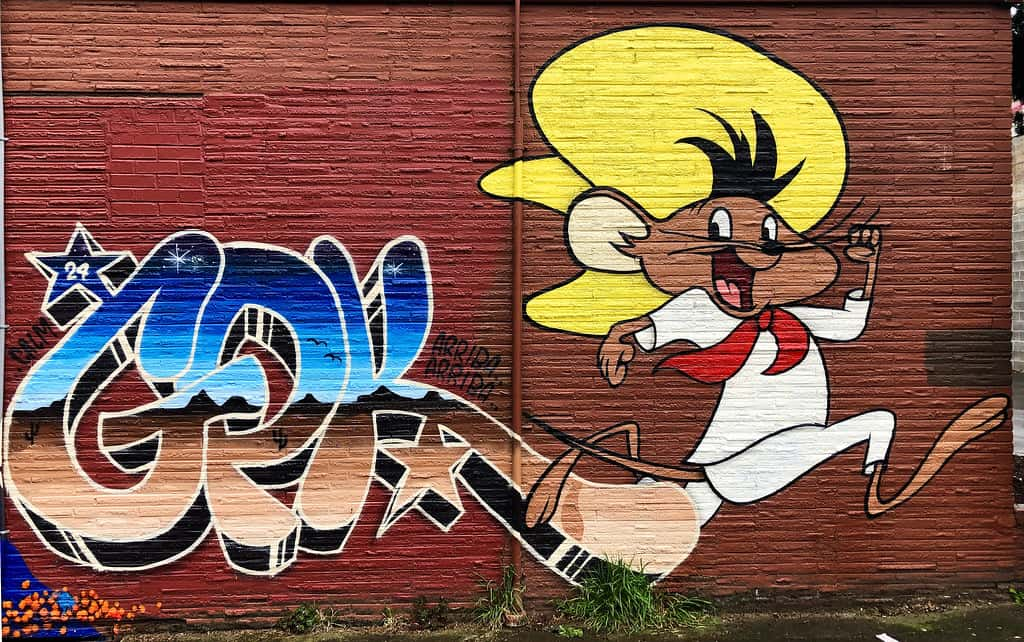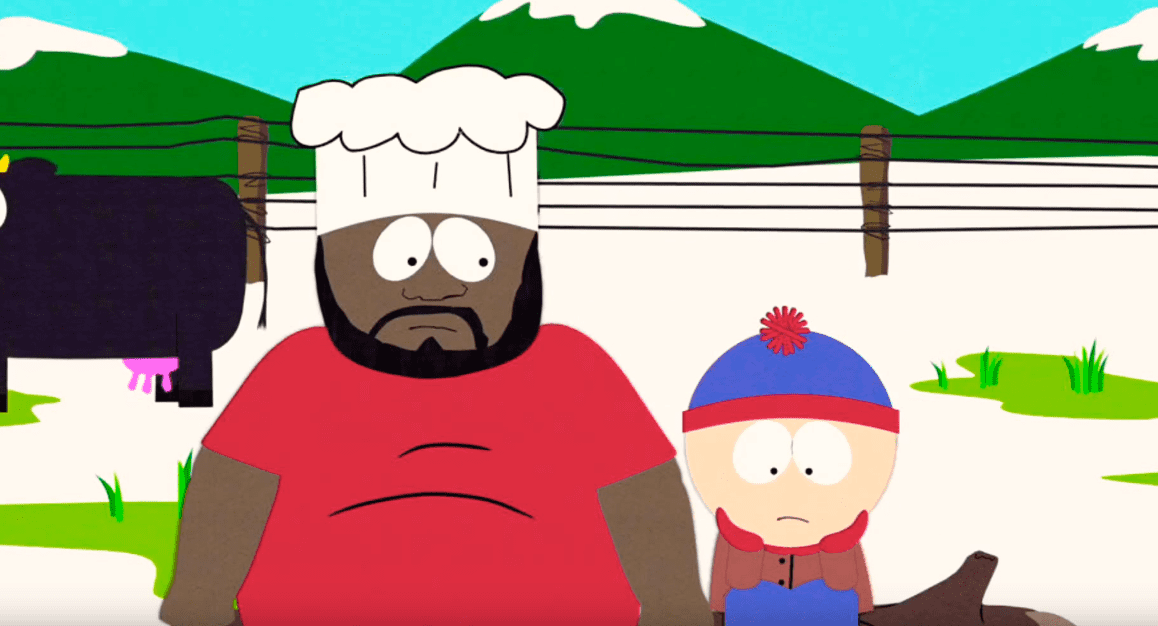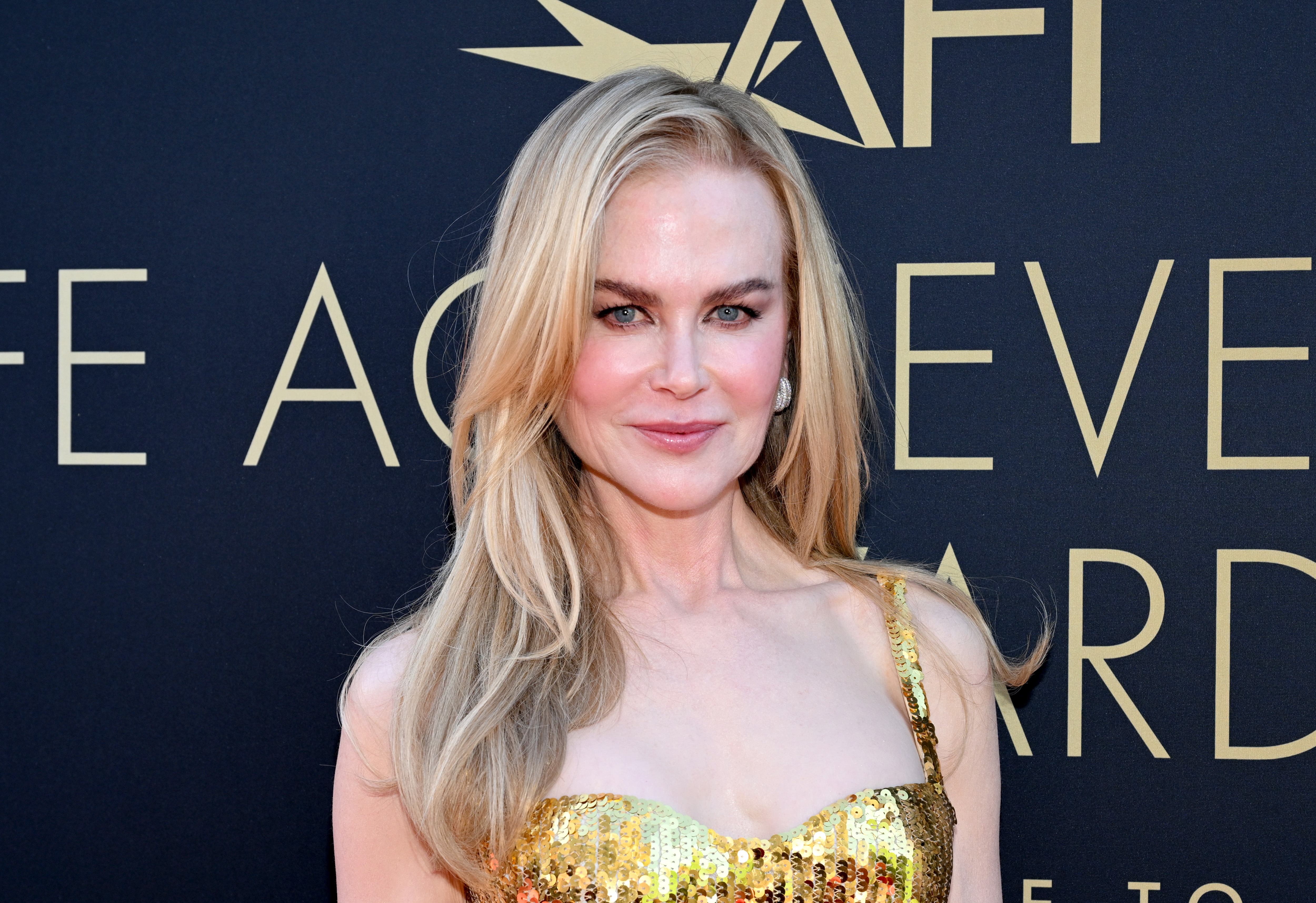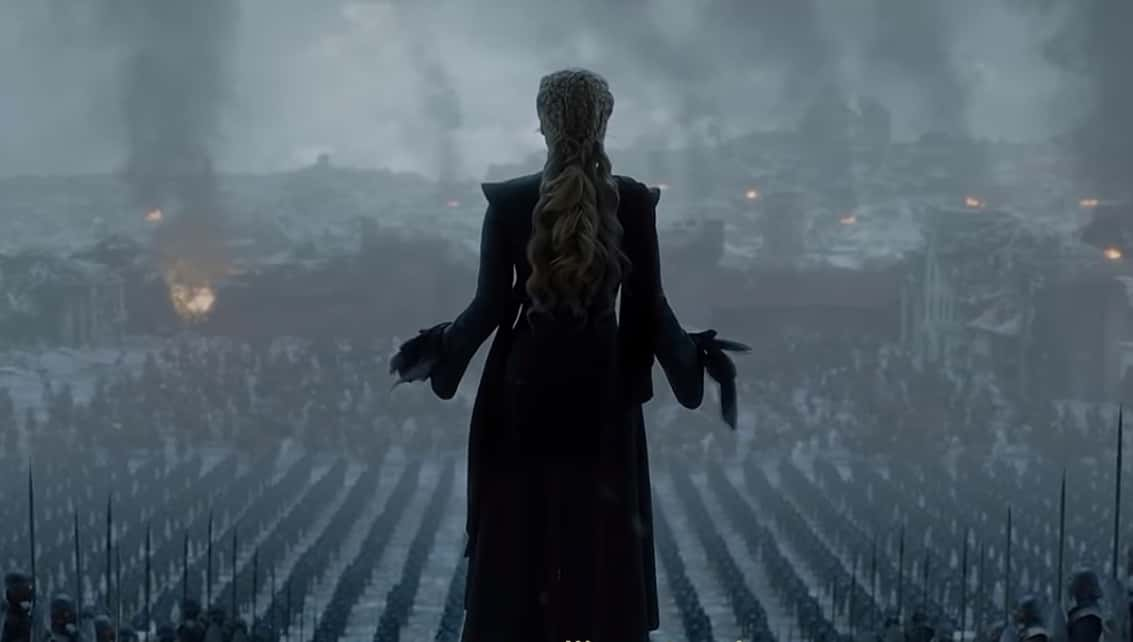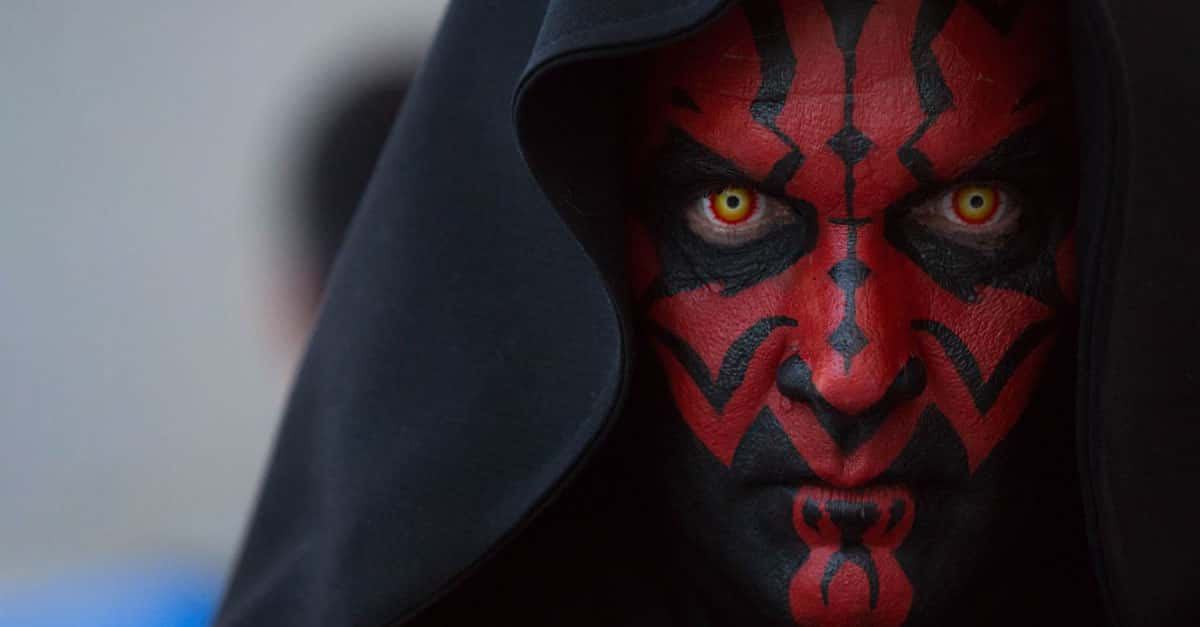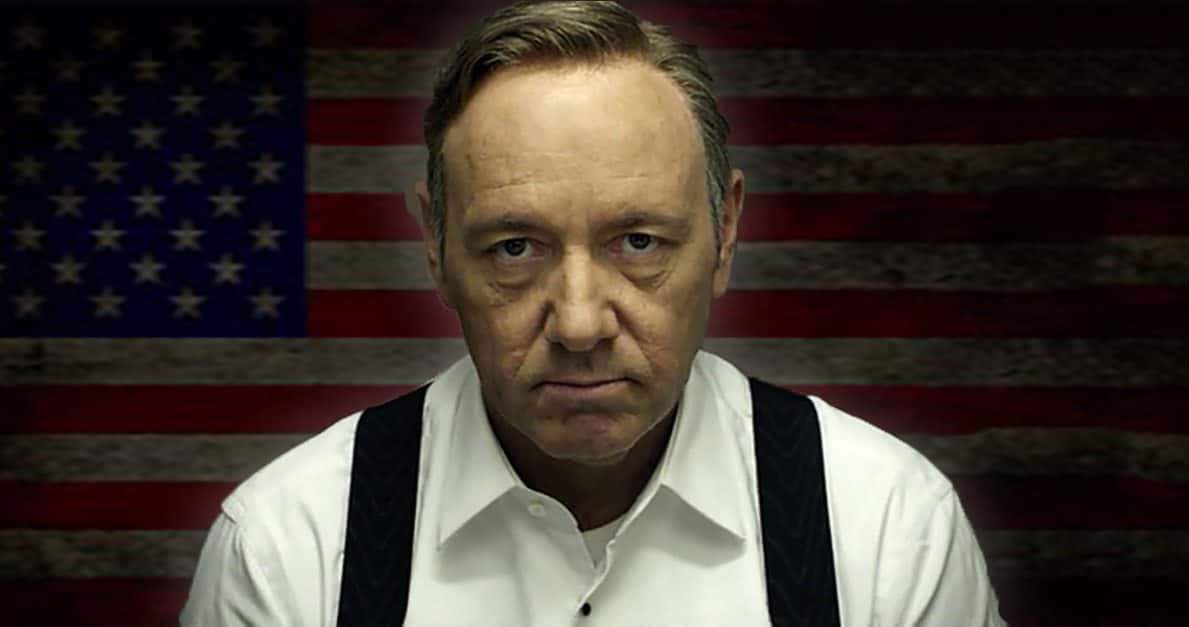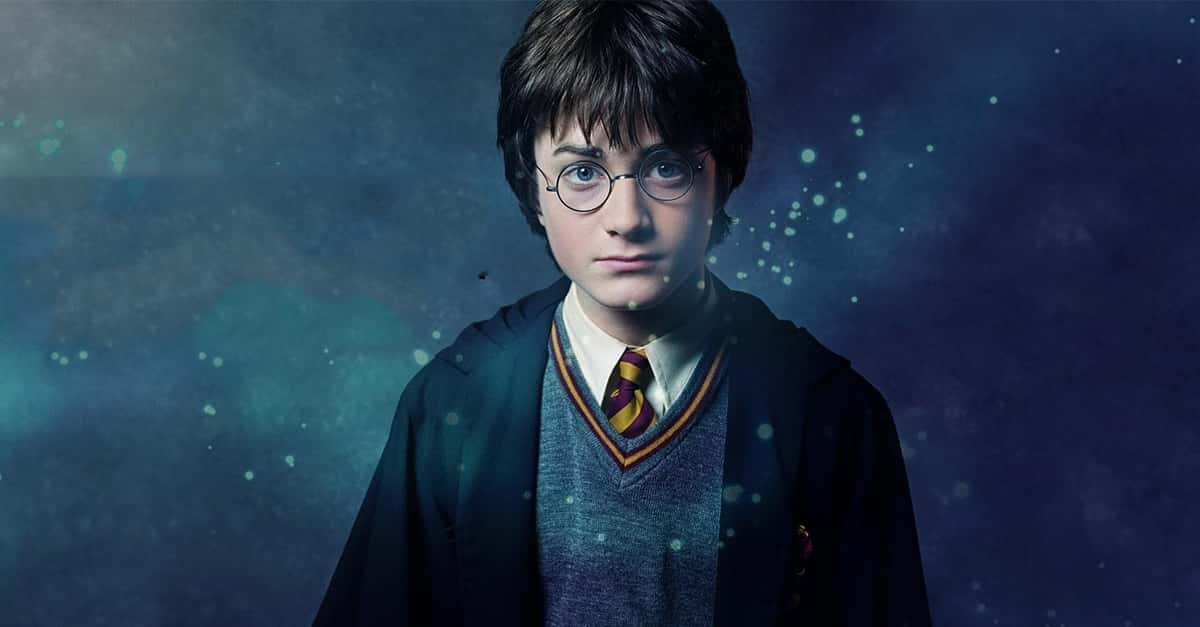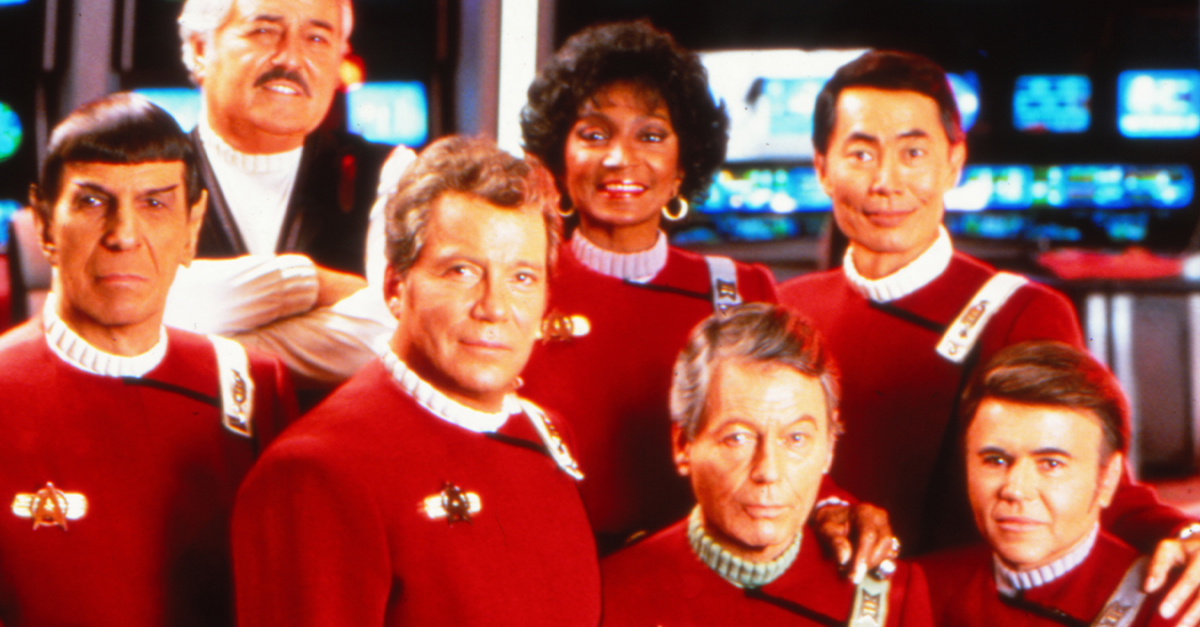Stars To Specters
Remember those cartoon friends who suddenly went missing? They were staples of our childhoods until they weren't. Network decisions, cultural reckonings, behind-the-scenes drama, and evolving animation changed the entertainment scenario forever.

Speedy Gonzales
Few anticipated the cultural crossfire that befell Warner Bros' quickest mouse in all of Mexico. In 1999, Cartoon Network pulled Speedy from broadcast rotation, citing concerns about ethnic stereotyping in his characterization and that of his fellow mice.
 Looney Tuesdays | Best of Speedy Gonzales | Looney Tunes | @WB Kids by WB Kids
Looney Tuesdays | Best of Speedy Gonzales | Looney Tunes | @WB Kids by WB Kids
Speedy Gonzales (Cont.)
The decision came amid growing scrutiny of older cartoon content featuring cultural representations considered problematic by modern standards. What many executives didn't anticipate was the backlash from the Latino community itself. The League of United Latin American Citizens campaigned for Speedy's return.
Speedy Gonzales (Cont.)
They argued that he represented a clever, heroic character who consistently outwitted his adversaries. By 2021, Speedy had made a comeback in Space Jam: A New Legacy, though with subtle modifications to his characterization that preserved his heroic qualities while toning down the stereotypical elements.
 Space Jam: A New Legacy | Neo Ain't Got Nothing On Me | WB Kids by WB Kids
Space Jam: A New Legacy | Neo Ain't Got Nothing On Me | WB Kids by WB Kids
Pepe Le Pew
Let’s talk about how this amorous French skunk's disappearance began not with an announcement but with a conspicuous absence. Fans noticed Pepe was completely missing from 2021's Space Jam: A New Legacy, despite having been a part of the original 1996 film.
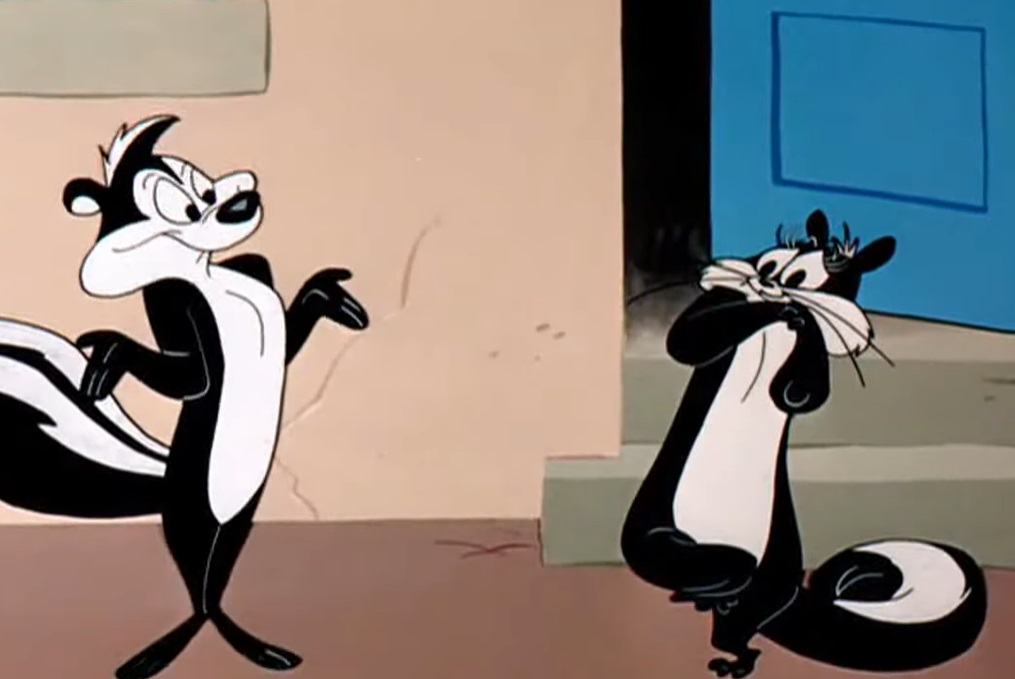 Warner Bros., Looney Tunes (1930-)
Warner Bros., Looney Tunes (1930-)
Pepe Le Pew (Cont.)
The decision to cut Pepe Le Pew from the film was made after a change in directors, with Malcolm D. Lee replacing Terence Nance. Additionally, Charles M. Blow's New York Times column criticized the character for perpetuating the wrong kind of culture.
Pepe Le Pew (Cont.)
Animator Chuck Jones created Pepe in 1945, basing the character partially on the 1938 film Pepe le Moko. For decades, his overly aggressive romantic advances were played for laughs, with his thick French accent and persistent misidentification of Penelope as a fellow skunk forming running gags.
Race Bannon
Remember that white-haired bodyguard from Jonny Quest? Well, he really nailed the tough Cold War-era action hero vibe when the show came out in 1964. Doug Wildey designed Race as a top-notch government agent tasked with keeping scientist Dr. Benton Quest and Jonny safe.
Race Bannon (Cont.)
His character gave off a sense of American exceptionalism during a time when tensions were high between the East and the West. Race faced substantial revision when Hanna-Barbera revived Jonny Quest for The Real Adventures of Jonny Quest in the 1990s.
Race Bannon (Cont.)
Apparently, the studio toned down his harsher characteristics and colonial-era attitudes that had become problematic. Rather than eliminating him entirely, producers reimagined Race with more nuance and cultural sensitivity. His diminished role and personality changes mirrored a quiet transformation.
The Crows
A group of animated birds with a weird legacy played a pivotal role in Dumbo. After discovering a despondent Dumbo and Timothy Mouse in a tree following their champagne-induced hallucination sequence, these characters initially mock the young elephant before ultimately helping him to fly.
 Dumbo, Walt Disney Productions
Dumbo, Walt Disney Productions
The Crows (Cont.)
Racial stereotypes prevalent in the entertainment of the time were represented in their portrayal. Named "Jim" or "Dandy," depending on the rendition, the main character made a clear allusion to Jim Crow segregation laws. Every crow performed jazz-influenced music and talked in an exaggerated dialect.
 When I see an Elephant Fly by Dumbo Lover
When I see an Elephant Fly by Dumbo Lover
The Crows (Cont.)
Disney's approach to this content evolved gradually. When creating the 2019 live-action remake, the studio decided to leave out the Crow characters. Additionally, these characters remain conspicuously absent from official merchandise and promotional materials, even those featuring the original animated movie.
 When I see an Elephant Fly by Dumbo Lover
When I see an Elephant Fly by Dumbo Lover
Ms. Sara Bellum
Our faceless yet indispensable assistant to the Mayor of Townsville was mysteriously absent when Cartoon Network rebooted The Powerpuff Girls in 2016. In the actual series, which ran from 1998 to 2005, Ms. Bellum was the competent brain behind the bumbling mayor.
 Ms. Sara Bellum: All Scenes (Season 2: Something's a Ms. - Pt. 1) by Bellum vs. Sedusa
Ms. Sara Bellum: All Scenes (Season 2: Something's a Ms. - Pt. 1) by Bellum vs. Sedusa
Ms. Sara Bellum (Cont.)
She often solved problems while receiving none of the credit. Her face was never shown, with camera angles deliberately cutting off her head, while emphasizing her curvaceous figure. As per reports, Creator Craig McCracken had no involvement in the 2016 reboot.
 Ms. Sara Bellum: All Scenes (Season 2: Something's a Ms. - Pt. 1) by Bellum vs. Sedusa
Ms. Sara Bellum: All Scenes (Season 2: Something's a Ms. - Pt. 1) by Bellum vs. Sedusa
Ms. Sara Bellum (Cont.)
Executive producer Nick Jennings explained Ms. Bellum's removal by stating, “We felt like Ms. Bellum wasn't quite indicative of the kind of messaging we wanted to be giving out”. The decision sparked backlash from longtime fans who argued she was a powerful and intelligent woman.
 Ms. Sara Bellum: All Scenes (Season 2: Something's a Ms. - Pt. 1) by Bellum vs. Sedusa
Ms. Sara Bellum: All Scenes (Season 2: Something's a Ms. - Pt. 1) by Bellum vs. Sedusa
Shaggy's Girlfriend Googie
Scooby-Doo and the Reluctant Werewolf (1988) introduced Shaggy's blonde girlfriend Googie, who seemed positioned to become a recurring character in the franchise. She participated actively in the monster-filled race alongside Shaggy and Scooby, showing resourcefulness and loyalty throughout the TV movie.
 Scooby Doo & The Reluctant Werewolf Credits by Everything Doo
Scooby Doo & The Reluctant Werewolf Credits by Everything Doo
Shaggy's Girlfriend Googie (Cont.)
In spite of receiving positive reception, Googie vanished from subsequent Scooby-Doo productions. Hanna-Barbera never officially explained her disappearance, but the character's removal did coincide with a return to the original formula, focusing on the core Mystery Inc team.
 Scooby Doo & The Reluctant Werewolf Credits by Everything Doo
Scooby Doo & The Reluctant Werewolf Credits by Everything Doo
Shaggy's Girlfriend Googie (Cont.)
When A Pup Named Scooby-Doo debuted the same year, it reinforced the classic dynamic without romantic entanglements. Later Scooby incarnations occasionally introduced temporary love interests for Shaggy, including Crystal from Scooby-Doo and the Alien Invaders, but Googie was not mentioned again.
Roadblock
"Knowledge is power," was the catchphrase of this G I Joe heavy machine gunner. Voiced initially by Kene Holliday and later by Blu Mankuma, Roadblock was a fan favorite known for his rhyming speech pattern and immense physical strength. It all complemented his intellectual depth.
 G.I. Joe: The Revenge of Cobra - Roadblock Says Hi to Cobra by Hasbro
G.I. Joe: The Revenge of Cobra - Roadblock Says Hi to Cobra by Hasbro
Roadblock (Cont.)
Hasbro and Marvel Productions reduced Roadblock's prominence dramatically in the 1987 season as part of a broader cast reshuffling. Animation historians note that Roadblock's characterization went from taxing concepts in early appearances to a more nuanced portrayal before his screen time diminished.
 G.I. Joe: The Revenge of Cobra - Roadblock Says Hi to Cobra by Hasbro
G.I. Joe: The Revenge of Cobra - Roadblock Says Hi to Cobra by Hasbro
Minerva Mink
Was a beautiful white mink deemed too vulgar for children's television? Animation buffs know the answer is yes. Warner Bros created this glamorous character for Animaniacs in 1993, with leggy Minerva designed as a female counterpart to Yakko, Wakko, and Dot.
 Animaniacs Season 1 Episode 54, "Meet Minerva" Clip by Retro Channel
Animaniacs Season 1 Episode 54, "Meet Minerva" Clip by Retro Channel
Minerva Mink (Cont.)
Her segments featured male characters becoming comically infatuated with her, often resulting in over-the-top physical reactions. After just two solo cartoons—Meet Minerva and Moon Over Minerva—the character was relegated to brief cameo appearances. Producer Ruegger later confirmed that Standards and Practices found her “too risque”.
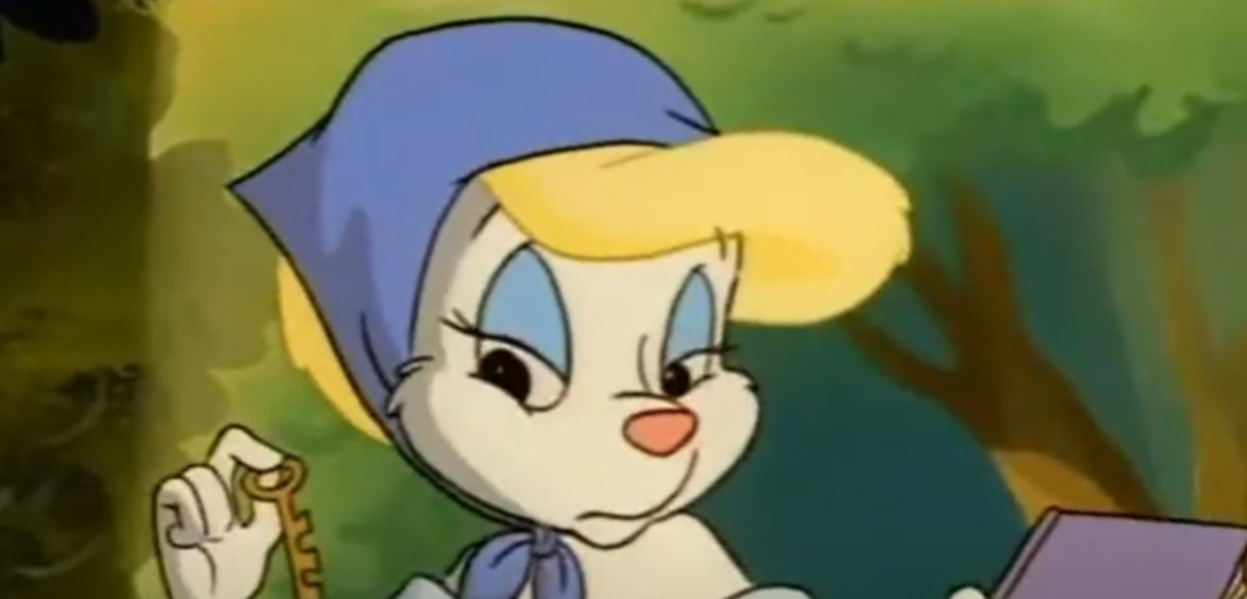 Minerva Mink part 1 (480p) by Artem Rodionov
Minerva Mink part 1 (480p) by Artem Rodionov
Chester McBadbat
The metal-mouthed best friend of Timmy Turner wasn't written out of The Fairly OddParents with a dramatic exit. His presence simply faded like a wish gone wrong. Chester, voiced by Jason Marsden, originally served as a core member of Timmy's friend group.
 Chester McBadBat (Fairly Oddparents) Voice Comparison (Read Description) by Gavinamongus 2K Spoofs
Chester McBadBat (Fairly Oddparents) Voice Comparison (Read Description) by Gavinamongus 2K Spoofs
Chester McBadbat (Cont.)
He used to provide comic relief with his poverty-stricken background, braces, and dirty blonde hair throughout the first five seasons of Hartman's long-running series. However, executive changes at Nickelodeon in 2006 prompted a character refocus that prioritized magical elements over school-based relationships.
 Chester McBadBat (Fairly Oddparents) Voice Comparison (Read Description) by Gavinamongus 2K Spoofs
Chester McBadBat (Fairly Oddparents) Voice Comparison (Read Description) by Gavinamongus 2K Spoofs
Chester McBadbat (Cont.)
Analysis of screen time reveals Chester appeared in some episodes during seasons 1–5, but made it to comparatively fewer ones in seasons 6–10. The shift coincided with the introduction of new characters, such as Sparky. When FOP relaunched as a live-action series in 2022, Chester was missing.
 Chester Mcbadbat Screaming by Darcy Waters Official
Chester Mcbadbat Screaming by Darcy Waters Official
Chef
Isaac Hayes' beloved character, Chef, was a staple of South Park for its first nine seasons. He worked as the children's mentor and voice of reason. As the school cafeteria cook, Chef delivered musical advice about life while becoming one of the show's most popular adult characters.
Chef (Cont.)
His smooth-talking personality and inappropriate songs became signature elements of the series from its 1997 premiere through 2006. Then came the character's abrupt removal, after Hayes chose to leave the show following the controversial Scientology episode of season nine, "Trapped in the Closet".
 The Best Chef Moments in South Park's First Five Seasons by Cheesy Poofs
The Best Chef Moments in South Park's First Five Seasons by Cheesy Poofs
Chef (Cont.)
Hayes, a Scientologist himself, objected to the episode's portrayal of his religion. In response, makers Trey Parker and Matt Stone killed off Chef in the season ten premiere “The Return of Chef”. They used spliced audio from previous episodes to give the character a disputed sendoff.
 The Best Chef Moments in South Park's First Five Seasons by Cheesy Poofs
The Best Chef Moments in South Park's First Five Seasons by Cheesy Poofs
Poochie
Meta-commentary on network execs messing with shows became real when The Simpsons introduced and quickly got rid of Poochie. In the 1997 episode "The Itchy & Scratchy & Poochie Show," Fox bosses pushed for a cool, skateboarding dog voiced by Homer Simpson to join the in-universe cartoon “Itchy & Scratchy”.
 The Simpsons - Poochie Dies On His Way Back To His Home Planet by eazyone83
The Simpsons - Poochie Dies On His Way Back To His Home Planet by eazyone83
Poochie (Cont.)
After fans totally rejected the character, he was killed off in his second appearance with the classic line, “I have to go now. My planet needs me”. What viewers didn't realize was that Poochie satirized actual channel demands for "younger, edgier" figures in long-running shows.
 The Simpsons - Poochie Viewing Party by NoBSClips
The Simpsons - Poochie Viewing Party by NoBSClips
Apu Nahasapeemapetilon
One of the most contentious character erasures in animation history began with the 2017 documentary The Problem with Apu. The Kwik-E-Mart owner had been a fixture on The Simpsons since 1990, voiced by white actor Hank Azaria with an exaggerated Indian accent.
 Best of Apu Nahasapeemapetilon | The Simpsons Compilation by ChrYpTic Toons
Best of Apu Nahasapeemapetilon | The Simpsons Compilation by ChrYpTic Toons
Apu Nahasapeemapetilon (Cont.)
Comedian Hari Kondabolu's documentary criticized the character as a harmful conception that influenced how South Asians were perceived in American culture. Following growing public discourse, Azaria announced in 2020 that he would no longer voice the character. The Simpsons producers subsequently reduced Apu's appearances.
 Best of Apu Nahasapeemapetilon | The Simpsons Compilation by ChrYpTic Toons
Best of Apu Nahasapeemapetilon | The Simpsons Compilation by ChrYpTic Toons
Apu Nahasapeemapetilon (Cont.)
Unlike others who received new voice actors during the show's casting changes, Apu was shown less in the show. Executive producer Al Jean acknowledged the controversy while the show itself addressed the situation obliquely in the 2018 episode “No Good Read Goes Unpunished”.
 Best of Apu Nahasapeemapetilon | The Simpsons Compilation by ChrYpTic Toons
Best of Apu Nahasapeemapetilon | The Simpsons Compilation by ChrYpTic Toons
Franklin
Franklin Armstrong made history as the first Black character in Charles Schulz's Peanuts comic strip. It was introduced in 1968 following the assassination of Martin Luther King Jr Schoolteacher Harriet Glickman wrote to Schulz urging him to integrate his popular comic, ultimately leading to Franklin's creation.
 Franklin From 'Peanuts' Stars in 'Snoopy Presents' Special by Inside Edition
Franklin From 'Peanuts' Stars in 'Snoopy Presents' Special by Inside Edition
Franklin (Cont.)
In the strip, Franklin was portrayed as intelligent, levelheaded, and athletic—a friend to Charlie Brown who never received the mockery other figures endured. While appearing in specials like "Race for Your Life, Charlie Brown" (1977), his role was often minimized compared to his white counterparts.
The Fonz
Arthur "Fonzie" Fonzarelli dominated American television as the breakout character from the live-action sitcom Happy Days. Henry Winkler's leather-jacketed greaser became a cultural phenomenon in the 1970s. Capitalizing on this popularity, Hanna-Barbera produced The Fonz and the Happy Days Gang (1980–1981).
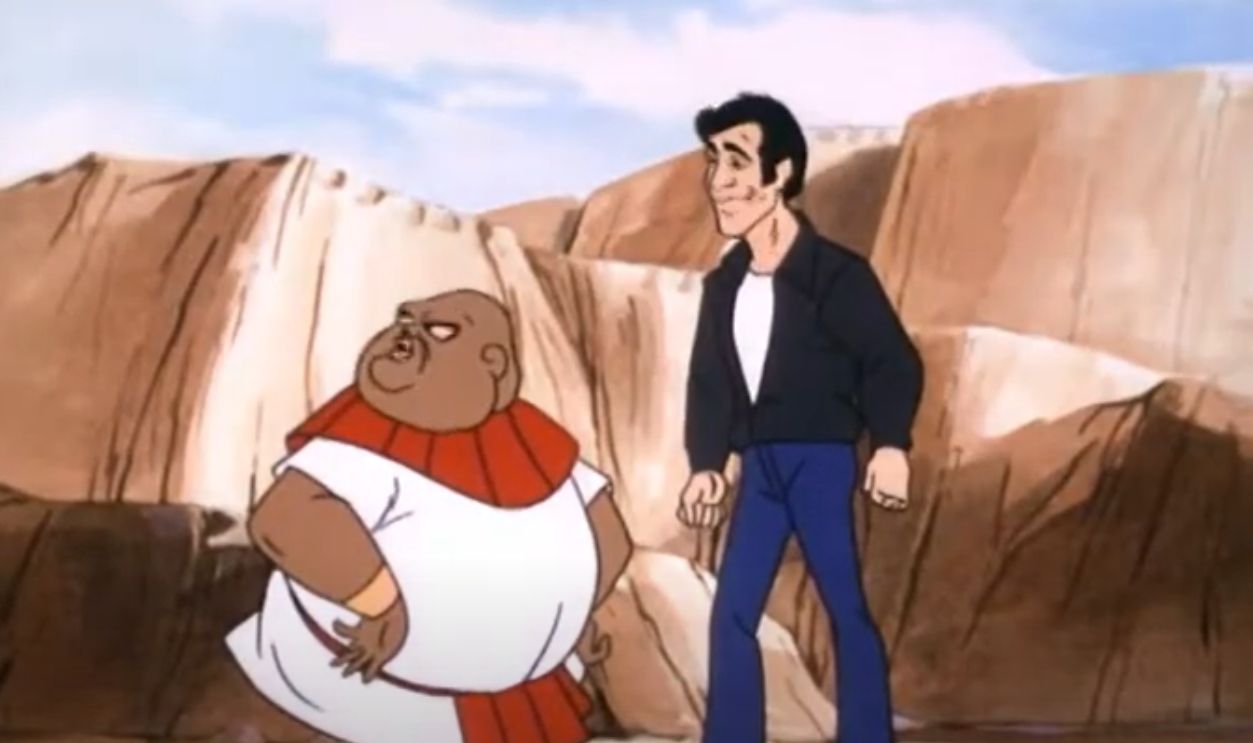 The Fonz and the Happy Days Gang - S01E09 - The 20,000 Drachma Pyramid by Serge Millimagino
The Fonz and the Happy Days Gang - S01E09 - The 20,000 Drachma Pyramid by Serge Millimagino
The Fonz (Cont.)
ABC and Hanna-Barbera gradually diminished his role despite being the titular character. In The Fonz and the Happy Days Gang, the character was initially central to the time-travel premise, but as the season progressed, focus moved more to the ensemble and the futuristic character Cupcake.
 The Fonz and the Happy Days Gang - S01E09 - The 20,000 Drachma Pyramid by Serge Millimagino
The Fonz and the Happy Days Gang - S01E09 - The 20,000 Drachma Pyramid by Serge Millimagino
The Fonz (Cont.)
By the second animated iteration within The Mork & Mindy/Laverne & Shirley/Fonz Hour, the Fonz segments were reduced to brief adventures that bore little resemblance to the character's live-action persona. After the cartoon's cancellation, these animated versions were essentially erased from Happy Days canon and merchandise.
 The Fonz and the Happy Days Gang - S01E09 - The 20,000 Drachma Pyramid by Serge Millimagino
The Fonz and the Happy Days Gang - S01E09 - The 20,000 Drachma Pyramid by Serge Millimagino
Sunflower The Centaurette
Originally appearing in the Pastoral Symphony segment, Sunflower was a small Black centaurette depicted with exaggerated elements. These included large eyes, a gap-toothed smile, and darkened skin that starkly contrasted with the white centaurettes. Her role in the movie was particularly problematic, though.
 Fantasia (1940) All Censored Scenes with Sunflower and Otika by Official business
Fantasia (1940) All Censored Scenes with Sunflower and Otika by Official business
Sunflower The Centaurette (Cont.)
She was shown exclusively in subservient positions: shining the hooves of white centaurettes, carrying their flower trains, and adorning their tails with decorations. Beginning with the 1969 theatrical re-release of Fantasia, Disney simply edited out all scenes containing the character.
 Fantasia (1940) All Censored Scenes with Sunflower and Otika by Official business
Fantasia (1940) All Censored Scenes with Sunflower and Otika by Official business
Sunflower The Centaurette (Cont.)
For subsequent theatrical re-releases and home video versions, Disney implemented several techniques to remove her. These included cropping frames to cut her out, zooming in on other parts of the scene, or, in some cases, completely re-editing sequences to eliminate her presence.
 Fantasia (1940) All Censored Scenes with Sunflower and Otika by Official business
Fantasia (1940) All Censored Scenes with Sunflower and Otika by Official business
Maude Flanders
Ned Flanders' devoutly religious wife met a shocking end that few cartoon figures ever experience. As the perfect complement to Springfield's friendliest neighbor, Maude was a fixture in the show's earlier seasons, regularly attending church events with her sons, Rod and Todd.
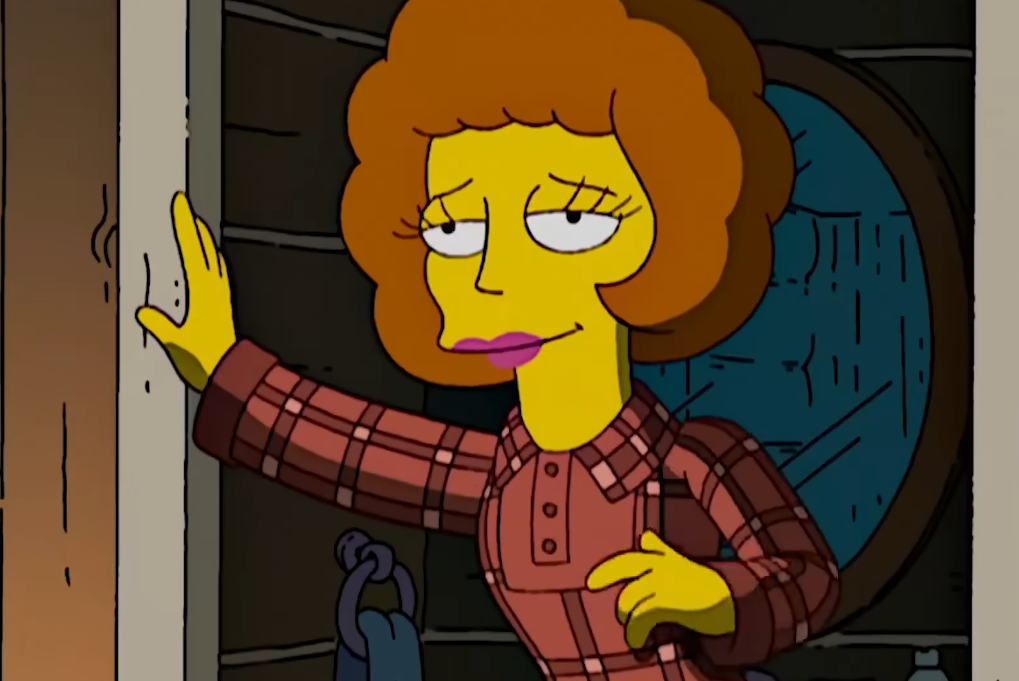 Gracie Films, The Simpsons 1989-
Gracie Films, The Simpsons 1989-
Maude Flanders (Cont.)
Behind the scenes, voice actress Maggie Roswell had relocated from LA to Denver in 1994, requiring her to fly back twice weekly. When she requested a pay increase in 1999 to cover these travel expenses, Fox declined. The resulting negotiation breakdown led to Roswell's departure.
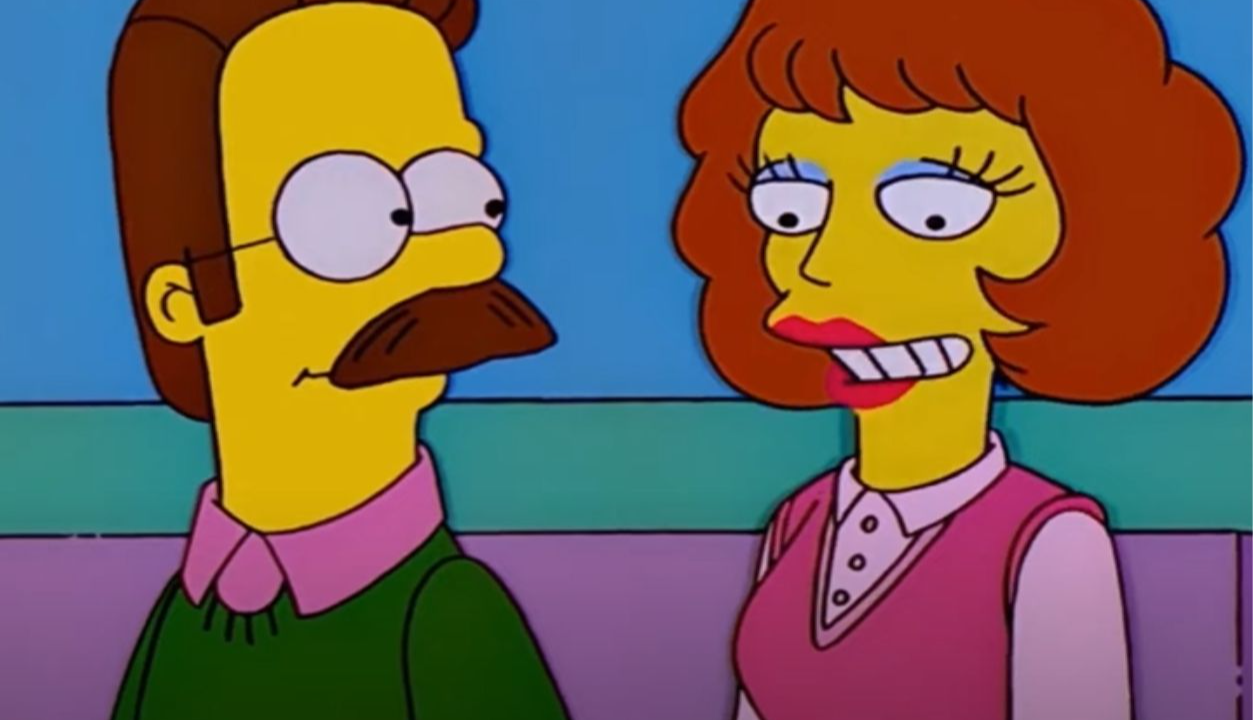 The Dark Side Of Maude Flanders by The Simpsons Theory
The Dark Side Of Maude Flanders by The Simpsons Theory
Mammy Two Shoes
One of the most troublesome stereotypes in animation was expressed by this character from the original Tom and Jerry cartoons. Showing up in numerous shorts throughout the 1940s, she was depicted as the African-American housekeeper whose face remained unseen. The camera showed only her lower body.
Mammy Two Shoes (Cont.)
Her characterization stood as an example of the "mammy" stereotype—a caricature of Black domestic workers dating back to plantation slavery. Apparently, voice actress Lillian Randolph played the role with an inflated dialect that emphasized racial generalizations common in entertainment of that era.
 Mrs Two Shoes are hitting through the kitchen! by Brandon Campbell
Mrs Two Shoes are hitting through the kitchen! by Brandon Campbell


